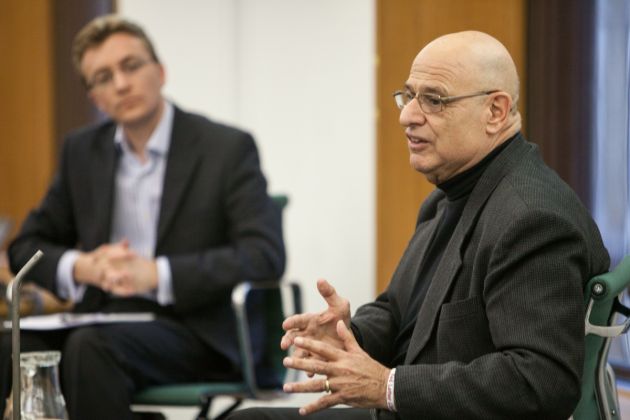Campolo: Eradicating corruption is key to establishing the Kingdom of God

Dr Tony Campolo, former spiritual adviser to US President Bill Clinton, addressed parliamentarians at the House of Commons on the issue of corruption on Wednesday.
At an event sponsored by the Bible Society, Dr Campolo highlighted the Exposed 2013 campaign which challenges individuals, businesses and governments to address the issue.
"What we have in the world today is not just a problem with certain individuals being evil. There is something about the way systems function and the way in which they are set up that makes corruption inevitable, even desirable," he said.
He made reference to the late American sociologist Robert Merton, who argued that structures within society can lead citizens to break the rules.
"'When a societal system does not provide legitimate means for reaching legitimate goals, the people will seek illegitimate means to reach legitimate goals'," Campolo explained.
He said: "We have to change the way the system works. Just because we are in a big country like the UK or an even bigger country like the US it does not mean we can't do this."
As a 'red letter Christian', Campolo stressed the importance of taking the words of Jesus literally if the eradication of global corruption was to succeed.
"Indeed the kingdom is supposed to become an existential reality, and Jesus was saying he wants to create a group of people who create the kingdom here and now and getting rid of corruption is a very big part of establishing the kingdom of God," he said.
The aim of Exposed 2013 is to collect a million signatures against corruption, to be presented to the G20 leaders' summit next year.
In order to see change, Campolo added: "The ethos of the culture has to change but somebody has got to be the charismatic personality who stands up and gives voice to the issue.
"In the United States, attitudes opposing segregation had been growing and growing, but what was necessary? Martin Luther King to emerge seemingly out of nowhere to suddenly articulate this in ways that were irrefutable."
He continued: "I don't think we can end poverty without ending corruption. There are hundreds and hundreds of verses in the scriptures that call upon us to respond to the needs of the poor. Doing it here and now is important because I don't think the Church has been as aware of the call to address the needs of the poor as it is today.
'The Church has been great at charity but there is a difference between charity and justice. Unless we address the system, charity alone will not solve the problem."
The Exposed campaign will end with a weeklong vigil from 14 to 20 October.











